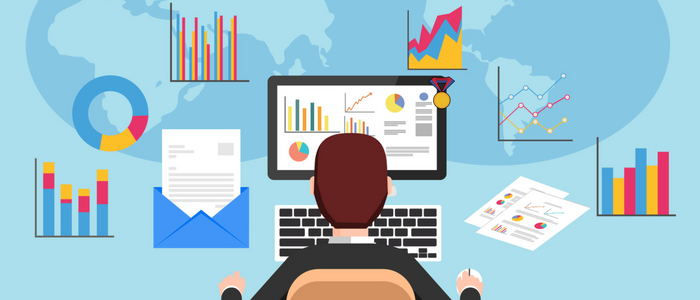In today’s rapidly advancing technological landscape, data science and the Internet of Things (IoT) have transformed how we approach urban living, leading to the concept of “smart cities.” These smart cities aim to enhance citizens’ quality of life by integrating cutting-edge technology with daily urban operations. Through innovative city initiatives, authorities can optimize resource use, reduce pollution, improve public services, and foresee potential problems. For professionals in data science, understanding how IoT fits into urban planning is critical, especially as the demand for skills grows in tech hubs worldwide. For instance, a data science course in Mumbai can be essential for those looking to contribute to India’s tech-driven city developments.
What Are Smart Cities?
Smart cities use digital technologies to improve municipal functions, from traffic management to waste collection. Smart cities rely on IoT devices to collect data, which is then analyzed using data science to get insights and make informed decisions. Key features of smart cities include:
- Smart transportation systems to reduce traffic congestion.
- Energy-efficient buildings that adjust power use based on occupancy.
- Smart waste management to optimize collection routes and times.
- Real-time data monitoring to enhance public safety and emergency response.
Integrating data science and IoT enables cities to operate more efficiently and be more responsive to residents’ needs.
The Role of IoT in Smart Cities
IoT devices are essential in smart cities because they continuously collect data from the physical environment, allowing cities to react and adapt in real-time. Here’s how IoT contributes to various aspects of urban life:
Smart Infrastructure
These devices can monitor the structural health of bridges, tunnels, and roads. For example, sensors embedded in roadways can detect cracks or signs of wear, alerting maintenance teams before issues worsen. This predictive maintenance is more cost effective than waiting for repairs and improves public safety.
Environmental Monitoring
IoT devices measure air quality, noise levels, and water pollution. Poor air quality is a severe issue in high-density urban areas. IoT sensors can provide accurate, real-time information on pollutants, helping authorities implement strategies to reduce pollution and protect public health.
Energy Management
Smart meters and IoT-based energy management systems track energy consumption in homes and businesses. These systems allow energy providers to monitor peak usage times, distribute electricity efficiently, and reduce wastage. This results in lower energy costs for residents and a smaller carbon footprint for the city.
Traffic and Mobility
IoT devices track vehicle movement, and pedestrian flows in smart cities to manage traffic congestion. Traffic lights, for example, can adjust timing based on real-time data from IoT sensors, allowing smoother traffic flow and reducing commute times. These systems can also assist emergency services in navigating through traffic during high-priority situations.
How Data Science Enhances IoT Functionality in Smart Cities
Data science brings IoT data to life by transforming raw information into actionable insights. Here’s how data science processes IoT data for smart city applications:
Data Collection and Storage
Smart cities have massive amounts of data every second, requiring robust systems to store, process, and analyze this data. Data scientists help design scalable databases and storage solutions, ensuring the city’s infrastructure can handle continuous data inflows.
Data Processing
Data collected from IoT devices must be cleaned, categorized, and structured before analysis. Data scientists use machine learning algorithms to preprocess this data, filtering out noise and ensuring accuracy.
Predictive Analytics
It uses machine learning to forecast future trends. For instance, analyzing historical traffic data allows cities to predict traffic patterns and manage congestion. Similarly, weather prediction models can inform public safety measures before storms or heat waves.
Visualization and Decision Support
Data visualization tools make IoT data more accessible, allowing city planners and decision-makers to interpret complex data sets quickly. For example, visual dashboards displaying traffic data help officials make informed decisions about road closures or public transportation adjustments.
For individuals interested in urban tech, completing a data science course in Mumbai provides practical knowledge of data collection, analysis, and visualization—skills in high demand as cities worldwide embrace digital transformation.
Benefits of Integrating Data Science and IoT in Smart Cities
Integrating IoT and data science brings numerous benefits, impacting citizens’ quality of life and the environment. Here’s a look at some of these advantages:
Enhanced Resource Efficiency
By analyzing water and energy use data, cities can identify high-consumption areas and implement measures to reduce wastage. That is essential in places with limited resources, ensuring fair distribution among residents.
Improved Public Safety
Data science and IoT enhance public safety through predictive policing, where data on crime patterns helps authorities allocate resources to high-risk areas. Additionally, IoT sensors can monitor environmental hazards, sending alerts to residents in real-time.
Reduced Environmental Impact
Smart cities are often more sustainable, thanks to data-driven insights that help minimize emissions. For instance, smart traffic systems reduce vehicle idling, lowering emissions and improving air quality.
Better Quality of Life
Data science and IoT contribute to better city planning, reducing commuting times, and enhancing services like waste collection, making urban life more convenient.
Case Studies: Data Science and IoT in Action
Barcelona, Spain
Barcelona implemented a smart lighting system that adjusts brightness based on pedestrian activity and natural light. That not only saves energy but also improves public safety. Data from this system helps the city optimize energy usage across other applications.
Singapore
Singapore is a leader in smart transportation, using IoT sensors to collect data on public transit usage and traffic flow. The data is analyzed to adjust bus schedules and inform citizens of real-time travel conditions, reducing overcrowding.
Mumbai, India
Mumbai is exploring smart city solutions in India, where cities are rapidly growing. Through various initiatives, data scientists are working to implement predictive analytics in traffic management and pollution monitoring. For professionals in Mumbai, taking a data science course in Mumbai can provide the skills needed to work on such projects, making them valuable assets in the city’s tech landscape.
Challenges in Implementing IoT and Data Science for Smart Cities
Despite the promise of smart cities, there are notable challenges:
- Data Privacy and Security: Collecting data from millions of sensors raises privacy concerns. Cities must secure data against potential breaches and unauthorized access.
- Infrastructure Costs: Setting up IoT networks and data science infrastructure can be costly. Funding and partnerships are essential to make smart city projects sustainable.
- Data Integration: Integrating and standardizing information with various data sources can be complex.
- Skill Shortages: A shortage of skilled professionals can delay project timelines. Courses like data science course in Mumbai are crucial to preparing more professionals for these roles.
Conclusion
Integrating data science and IoT in smart cities creates a dynamic environment where data-driven decisions enhance urban life. By using IoT to collect data and data science to analyze it, cities can optimize resources, improve public services, and ensure a safer environment. The skills required to work on these projects are in high demand for professionals, making data science an excellent career path, especially in growing tech hubs.
For those aspiring to be part of this transformation, a data science course in Mumbai provides a solid foundation in analytics, machine learning, and IoT. These skills enhance employability and contribute to developing sustainable, efficient cities for the future. The smart city revolution continues to grow, and data science professionals will play an essential role in shaping tomorrow’s urban landscapes.
Business Name: Data Science, Data Analyst and Business Analyst Course in Mumbai
Address: 1304, 13th floor, A wing, Dev Corpora, Cadbury junction, Eastern Express Highway, Thane, Mumbai, Maharashtra 400601 Phone: 095132 58922



